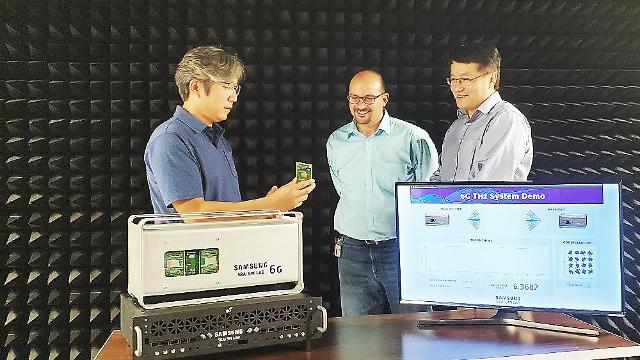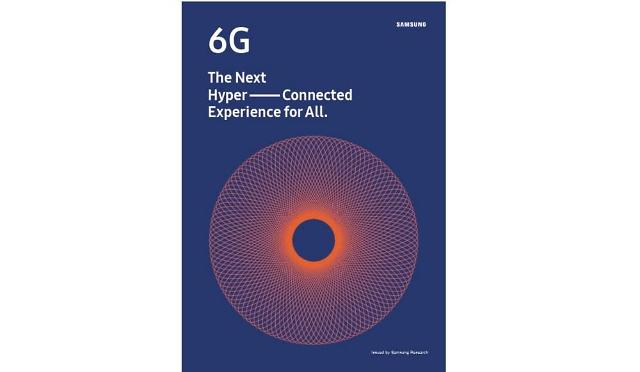
[Courtesy of Samsung Electronics]
SEOUL -- In a technical breakthrough, Samsung Electronics has demonstrated a 6G Terahertz wireless communication prototype in collaboration with a research team from the University of California Santa Barbara (UCSB). Terahertz (THz) is a unit of frequency defined as one trillion cycles per second.
As a frontrunner in disseminating 5G mobile services, South Korea aims to achieve the world's first commercialization of 6G mobile telecommunication in 2028. Scientists say 6G will open a completely new era. Researchers at the University of Oulu think the future-generation mobile network can transfer terabits per second, creating near-instant microsecond connectivity between societies.
Samsung has worked on the THz band that includes an enormous amount of available spectrum and could potentially provide a means to meet the 6G requirement of terabits per second data rate. The peak data rate can be 50 times faster than 5G, enabling 6G hyper-connectivity services and ultimate multimedia experience.
"We believe new spectrum opportunities at the THz spectrum will become a driving force of 6G technology. This demonstration can be a major milestone in exploring the feasibility of using the THz spectrum for 6G wireless communications," Choi Sung-hyun, head of Samsung's advanced communication research center, said in a statement on June 16.
At a recent workshop at the IEEE International Conference on Communications, Samsung and UCSB researchers introduced the potential impact that THz could have on next-generation 6G technology, demonstrating an end-to-end 140GHz wireless link using a fully digital beamforming solution. Beamforming focuses power to desired users to form beams, expand coverage and increase speed.
In the over-the-air test, Samsung said the prototype system achieved the real-time throughput of 6.2 Gbps over a 15-meter distance with adaptive beam steering capability at the THz frequency.
Samsung and UCSB researchers have worked on the development of a THz phased array module that requires sophisticated packaging technology to allow research test chips to be used in a large-scale array module. Samsung said its precise digital beamforming calibration algorithm enabled the module to achieve high beamforming gain.
"We bring our knowledge of advanced mmWave technologies, in particular the THz spectrum above 100GHz, focusing on devices and integrated circuits, while Samsung provides its expertise in wireless systems and cellular networks," Mark Rodwell, a UCSB professor, was quoted as saying.
In a white paper released in July 2020, Choi predicted the mass commercialization of 6G around 2030, saying 6G will be characterized by the provision of advanced services such as truly immersive extended reality (XR), high-fidelity mobile hologram and digital replica. XR encompasses a wide spectrum of hardware and software that enable content creation for virtual reality, mixed reality and cinematic reality.
Copyright ⓒ Aju Press All rights reserved.




View more comments